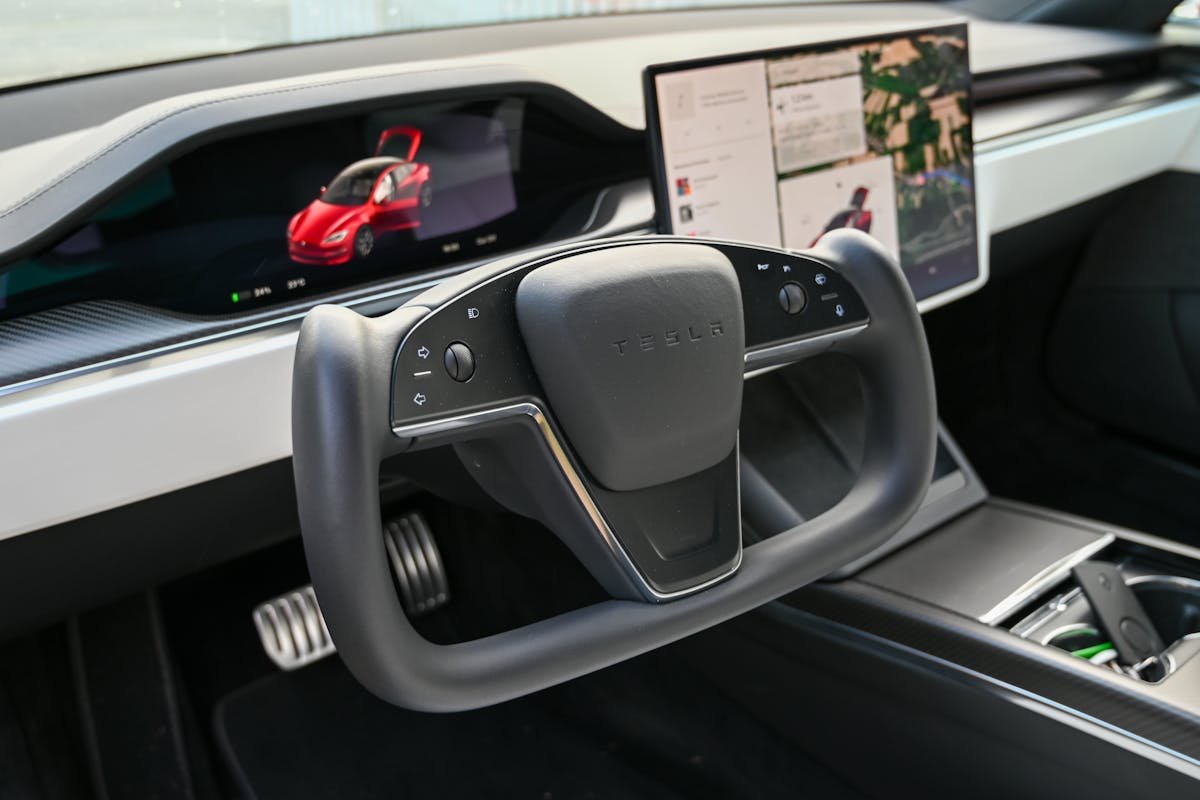The Death of Driving: Are Autonomous Cars Quietly Crashing the Auto Industry?
Transportation & Urban Development / Date: 06-23-2025

People aren't buying cars like they used to—and it's not just about the price.
Something deeper is changing. Owning a car—your own wheels, your own road, your own rules—is becoming less and less of a dream. Autonomous vehicles. Driverless, soulless, oddly polite little machines that never speed, never curse at traffic, and never feel the wind in their hair.
But let’s not romanticize too soon. This shift isn’t just about cool tech or safety upgrades. It's upending the auto industry's core base. Car companies, dealerships, even insurance giants—they're all quietly freaking out.
In this article, we're pulling back the curtain on the uncomfortable truth no one's really talking about: self-driving cars may not just change driving. They might kill it—and take the whole industry down with them.
Why Owning a Car in 2025 Might Be Totally Pointless

Remember when turning 16 meant one thing? Freedom. Your license. Your first car. These days? Teens are more excited about their new iPhone than their first set of wheels.
The "Uber Effect" Got a Glow-Up
Ridesharing already made car ownership feel kinda optional. But now, with autonomous taxis quietly testing in cities like San Francisco and Phoenix, the question isn't "Should I buy a car?"—it's "Why would I?"
No more parking. No gas. No insurance. No maintenance drama. Just tap, ride, done. Sounds dreamy, right?
However, it also means that fewer people will purchase cars. And for a business that relies on selling you something that is unused 95% of the time, that means serious difficulty.
Subscription > Ownership
Here’s the twist: Car companies saw it coming. Sort of.
That's why some now offer car subscriptions—like Netflix, but for wheels. Pay monthly, switch vehicles, cancel anytime. Great for convenience. Terrible for loyalty. A single car will no longer hold an emotional connection. No more “forever” brand love.
This model is flexible. But it’s also fragile. It turns cars into commodities, not passions. And when passion dies, so does consumer obsession.
The Death of Dealerships—and Why No One’s Mourning
Let’s be honest—no one loves going to the dealership.
aggressive salespeople. bloated documents. Unexpected charges. "How uncomfortable can we make this?" is akin to the game.
Autonomous Cars Break the Traditional Sales Chain
Driverless cars don’t sell themselves on horsepower or leather seats. They sell on software, data, and efficiency.
Instead, you'll likely summon an autonomous ride via app—maybe one run by Google, Tesla, Apple, or (plot twist) Amazon. In other words, Silicon Valley becomes the new center of power instead of Detroit. from programmers to mechanics.
Bye Bye, Service Departments
Dealers make a huge chunk of profits from service visits. But autonomous EVs have fewer moving parts. No oil changes. No mufflers. No spark plugs. And if they’re managed by fleets? Maintenance becomes centralized and efficient.
Translation: Less breakdown. Less revenue. Less reason for that dealership to even exist.
The Human Side: Is Driving Becoming... Uncool?
This one’s gonna sting for the car lovers.
From “Muscle Car” to “Mobile Pod”
The Mustang. The Corvette. The growl of an engine at a red light. These things meant something. Driving used to be an identity, a thrill, a ritual. Now? It’s getting reduced to an algorithm.
A self-driving car doesn’t want your personality. It wants your destination.
As we shift to pods-on-wheels, the joy of driving may become niche—a hobby for weekend warriors, racetrack junkies, or retro fanatics.
Are Humans the Risk Now?
Here’s a scary (and true) twist: Statistically, humans are the problem. Human mistake is the cause of more than 90% of auto accidents.
So while driverless tech still has hiccups (hello, Cruise and Waymo), the long-term bet is clear: machines are safer. Or at least, more predictable.
The Insurance Industry’s Coming Meltdown
It’s not just automakers sweating bullets. Insurance companies are watching the ground shift under them too.
Fewer Accidents = Fewer Claims = Smaller Profits
If autonomous cars really do cut accidents, that’s amazing—for people. Not good for multibillion-dollar insurance companies that depend on a constant flow of fender benders to make ends meet.
And who pays for crashes in a driverless world? You? The carmaker? The software provider?
There are a lot of legal ambiguities, and the sector isn't prepared for them.
The Tech Giants Are Eating Detroit's Lunch: The Power Shift
Remember when General Motors and Ford were kings of the road?
Now the kings are wearing hoodies and talking about neural networks.
Tesla Was Just the Start
Apple’s been working on a secret car project for years (and let’s be real—it’s probably white, sleek, and comes without a headphone jack). Google’s Waymo already has robo-taxis roaming parts of the U.S. Amazon bought Zoox.
Why? Because the new fuel is data. The future belongs to whoever controls the platform. Silicon Valley is rushing to install the operating system as cars turn becoming moving devices.
Here’s the Kicker…
We’re not losing cars. We’re losing driving. And with it, a huge chunk of identity, economy, and everyday culture.
The auto industry isn't dying overnight—but it's shedding skin. Fast. Companies that can’t adapt? They’ll go the way of Blockbuster. Or worse, Nokia.
The real question?
Are you ready to stop driving—or are you clinging to a freedom that's already halfway out the door?
Follow Us
Newsletter
Subscribe to our newsletter to stay updated with our latest news and offers.
We respect your privacy.Trending










